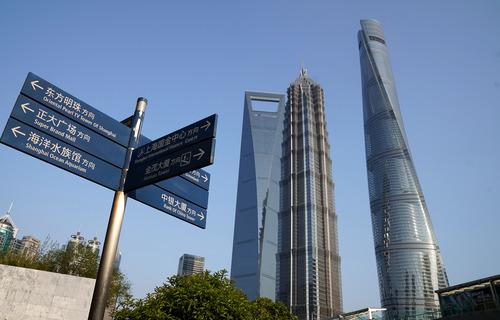BEIJING, July 2 (Xinhua) -- China has released its new, shortened negative lists for foreign investment amid efforts to further improve its business environment and boost foreign investors' confidence.
The number of sectors that foreign investors are restricted from entering will be cut to 33 in the 2020 version of the negative list from 40 in the 2019 version, according to a statement jointly released by the National Development and Reform Commission and the Ministry of Commerce on June 24.
According to the statement, the negative list for pilot free trade zones was reduced to 30 from 37. The two new negative lists will take effect on July 23.
Insiders noted that China has shortened the lists for four consecutive years, showing the country's resolve to resolutely support economic globalization and multinational investment.
In the future, China is expected to further shorten the negative lists in an effort to substantially broaden market access for foreign investment.
According to World Investment Report 2020 released by the United Nations Conference on Trade and Development (UNCTAD), global foreign direct investment (FDI) flows are forecast to shrank 40 percent year on year to below 1 trillion U.S. dollars this year, the lowest in the past 15 years, as the coronavirus pandemic rippled through the world.
Under this context, the latest negative lists for foreign investment will not only be conductive to China's economic recovery, but also help multinational companies restore production and operation and ramp up investment, thus making a positive contribution to promoting the stability of global trade and investment, keeping global industrial and supply chains stable and enhancing the world's economic vitality, said Li Dawei, research fellow at Academy of Macroeconomic Research.
Cui Fan, a trade expert at the University of International Business and Economics, noted that the reduction of the negative lists is a significant step for China to push forward investment liberalization.
Li also pointed out that the new lists showcased the country's determination to accelerate the high-level reform and opening up and further build up consensus in an attempt to push for the in-depth development of globalization.
Besides, China's continuous efforts to expand reform and opening up strengthened foreign investors' confidence.
Data showed that foreign direct investment (FDI) into the Chinese mainland, in actual use, expanded by 7.5 percent year on year to 68.63 billion yuan in May.
Cui stressed that the reduction of each negative list item means that one more area is available to foreign investment, which will bring more foreign capital inflows.
U.S. electric carmaker Tesla opened its first gigafactory outside the United States in Shanghai after China scrapped foreign shareholding limits on manufactures of new energy vehicles and special-purpose vehicles in 2018.
It is foreseeable that the cancellation of foreign ownership caps on commercial vehicle manufacturing this year and the liberalization of foreign ownership limits on passenger vehicles by 2022 will lure more foreign vehicle manufactures to make investment in China.
(Edited by Yang Yifan with Xinhua Silk Road, yangyifan@xinhua.org)




 A single purchase
A single purchase









